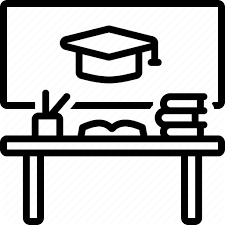A sense of humor as an essential component of pedagogical optimism
Abstract
The given article deals with the implementation of humor in teaching process. Advantages of the possession of sense of humor for FL teachers are illustrated via a wide range of authentic cases from teaching experience. The given cases are analyzed and suggestions are given. The importance of humor effect on learners` language acquisition and creating a friendly classroom atmosphere is considered.
References
Brejnevskaya,N.Ye.(2014).Yumor kak instrument povisheniya effektivnosti obrazovatelnogo protsesa. Retrieved from www.publishing-vak.ru (inRuss)
Makarenko, A.A. (2000).Yumor v obrazovanii. Retrieved from www.b17.ru (inRuss)
Paribka, L.N. (2013)SPS № 14, Kazakhstan, Pavlodar city/ Yumor v rechiuchiteley. Retrieved from www.sibac.info(inRuss)
Askildson, Lance (2005). Effects of humor in the language classroom:
Humor as a pedagogical tool in theory and practice. Arizona Working Papers in SLAT, 12, 45-61.
Minchew, Sue S. (2001). Teaching English with Humor and Fun. American Secondary Education, 30 (1), 58-70. Retrieve from http://www.jstor.org/stable/41057828
Oxford Royale Academy. (2016). Inspirational cultural and academic courses. Retrieved from: https://www.oxford-royale.co.uk/articles/11-great-jokes-remember-english-grammar-rules.html
Freeman, Diane Larsen (2000). Techniques and Principles in Language Teaching. New York, NY: Oxford University Press.
Hunsaker, Johanna S., (1988). It's No Joke: Using Humor in the Classroom. The Clearing House, 61 (6), 285-286. Retrieve from http://www.jstor.org/stable/30188340
Balcikanli, Cem (2009). Long Live, You Tube: L2 Stories about You Tube in Language Learning. 91-95.
Scrivener, Jim (1994). Language Teaching. The Essential Guide to English Language Teaching. London: Macmillan.

In submitting the manuscript to the International Journal on Integrated Education (IJIE), the authors certify that:
- They are authorized by their co-authors to enter into these arrangements.
- The work described has not been formally published before, except in the form of an abstract or as part of a published lecture, review, thesis, or overlay journal.
- That it is not under consideration for publication elsewhere,
- The publication has been approved by the author(s) and by responsible authorities – tacitly or explicitly – of the institutes where the work has been carried out.
- They secure the right to reproduce any material that has already been published or copyrighted elsewhere.
- They agree to the following license and copyright agreement.
License and Copyright Agreement
Authors who publish with International Journal on Integrated Education (IJIE) agree to the following terms:
Authors retain copyright and grant the International Journal on Integrated Education (IJIE) right of first publication with the work simultaneously licensed under Creative Commons Attribution License (CC BY 4.0) that allows others to share the work with an acknowledgment of the work's authorship and initial publication in this journal.





1.png)
